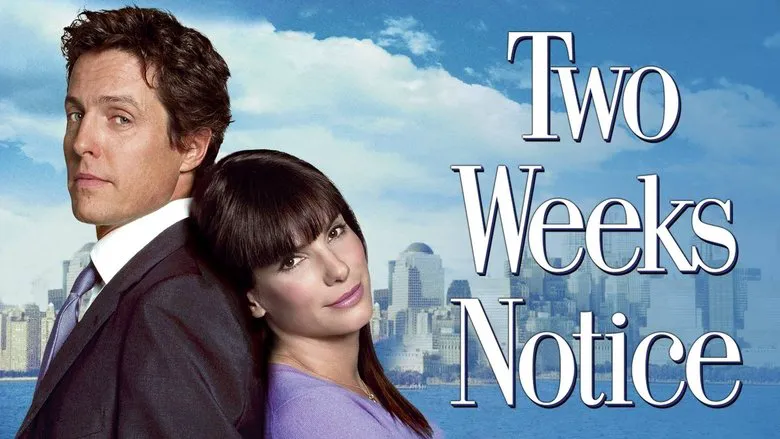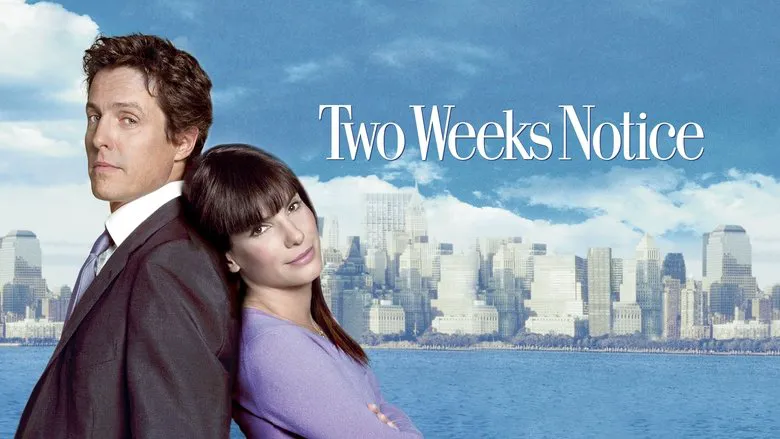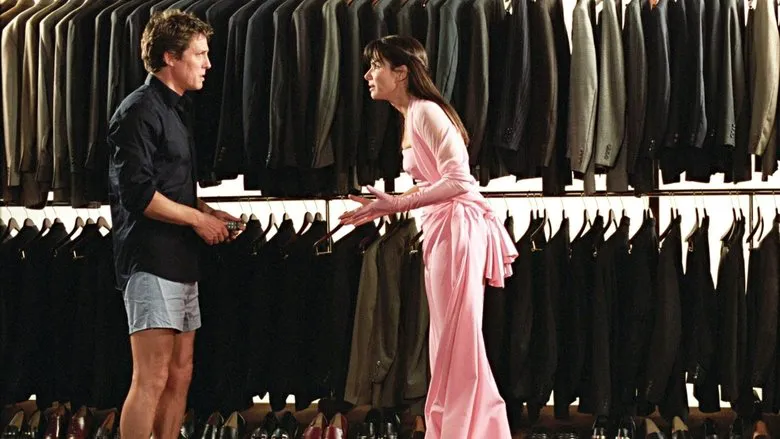The Cynical Exploitation of Romance in “Two Weeks Notice”
Why bother with wit on the promotional posters when the creators of the supposed comedy “Two Weeks Notice” couldn’t muster any on film? The answer, tragically, is that they didn’t need to. They shamelessly exploited the star power of Hugh Grant and Sandra Bullock, along with the familiar tropes of romantic comedy, to rake in over $100 million. The film has already grossed over $90 million, despite eagle-eyed viewers spotting numerous plot holes and inconsistencies, even within the film’s simplistic narrative and modern setting (as noted on IMDb). Meanwhile, others struggle to earn a fraction of that amount, even if they were to abstain from all pleasures and remain confined to their homes for a century.

Hugh Grant is once again typecast in a role reminiscent of “Four Weddings and a Funeral,” where he first gained recognition as a charmingly awkward, self-deprecating romantic lead. A few years later, in “Bridget Jones’s Diary,” his character from “Four Weddings…” had climbed the corporate ladder but also succumbed to moral decay, which he ultimately acknowledged but didn’t truly reject. This time around, his character experiences a similar journey of self-awareness and eventual redemption. Sandra Bullock, too, is used in a predictable manner. In films like “Love Potion No. 9” and “Practical Magic,” her perpetually surprised expression hinted at something mystical. “Miss Congeniality” grounded her in reality, blending magical transformations with law enforcement. In “Two Weeks Notice,” the law itself becomes a form of magic.

The romance is forced and uninspired. A privileged real estate mogul (Grant) seeks to demolish a community center, opposed by a spirited lawyer with perpetually raised eyebrows (Bullock). To simplify matters, he hires her to work for him, and over a couple of years, she becomes his de facto “second self.” She handles his negotiations, decorates his apartment, and listens to his late-night phone calls. However, there’s no real “magic” in their assistance, as the film lacks a compelling central conflict. There are only vague hints of one. Let’s assume, for the sake of argument, that the lawyer truly becomes the mogul’s “second self.” Let’s also assume that he eventually becomes incredibly annoying, even though this isn’t convincingly portrayed, and she abruptly decides to quit her high-paying job with no clear plan. He tries to stop her, she tries to quit, he tries to stop her, she tries to quit, and then he finally lets her go, only for her to become inexplicably jealous of her replacement, whom she herself hired. In reality, there’s no genuine “stopping” or “jealousy” – just a series of perfunctory scenes designed to fill time until he confesses his love and she chases after him.

The Illusion of Connection
The film is deliberately paced to be quick and superficial, leaving the audience wondering what just happened before the characters kiss and head for the altar. However, the only two scenes that truly resonate are those that highlight a genuine, platonic connection. In one scene, Grant and Bullock are dining at a bistro, and he casually snatches a few bites of meat from her plate while she transfers fried onions from his to hers, casually remarking, “Oh, you forgot the beets,” and placing a piece on his plate herself. This subtle exchange demonstrates a deep understanding and shared lifestyle between two people. Where does sex fit into this picture? Similarly, when Bullock experiences stomach cramps while stuck in traffic with Grant, he heroically takes charge and finds a restroom in the middle of the gridlock. This is another testament to a strong friendship. How does this naturally lead to a romantic relationship?

The Reality of Platonic Relationships
Anyone with friends of the opposite sex knows that if a platonic relationship leads to a sexual encounter, it’s usually accidental, due to a confluence of unfortunate circumstances. To prevent this from destroying the friendship and failing to create any love, it requires a significant shift in circumstances. Magical ones. And for that encounter to blossom into love with someone you know inside and out, it demands an acrobatic feat that erases all the years both parties meticulously concealed their supposed love at first sight. But Bullock and Grant don’t seem to be in love with anyone, either in real life or in these shallow, fleeting scenes. They remain solitary figures, each in their own country.
In short, the “love notice” is cynically and uninspiredly plastered onto the film by its creators. Thus, when Grant is propositioned by Bullock’s assertive replacement at a hotel, an even more cynical association arises. Why did the filmmakers shy away from making the replacement a black prostitute and why in a hotel, not in the back of a car, with a very specific sex act, as once happened in Los Angeles with the real-life prototype of the privileged mogul, as the whole world knows? And the wit on the screen doesn’t appear, because someone doesn’t need 100 million dollars at all. Well, they just don’t need it.